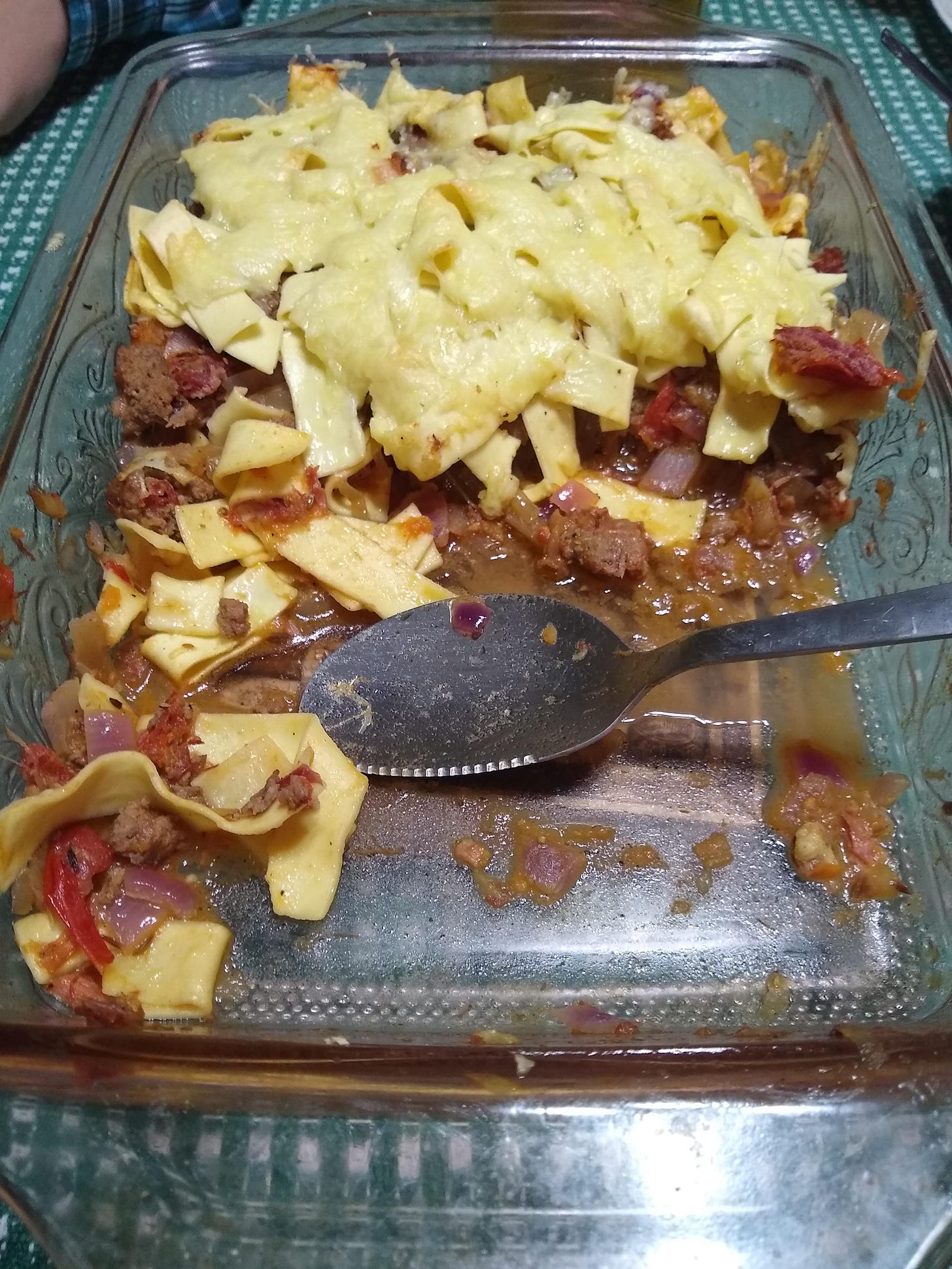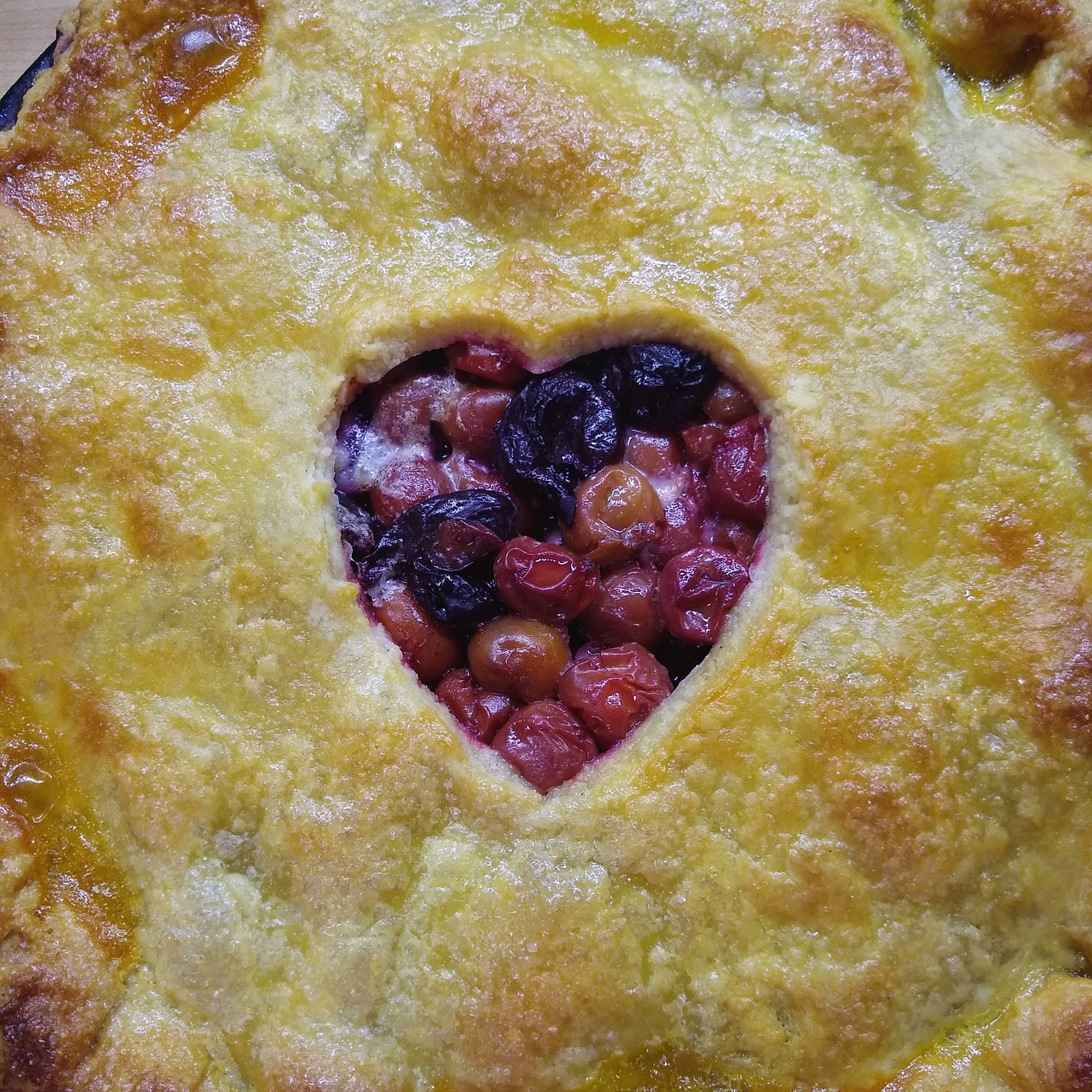Knowing how
it's not enough to know merely why
I have so many books and essays about food: about the pleasures of food, the art of gathering, the culture of the table, the sensory experiences of good food, the delicious coldness of perfectly ripe plums from the icebox. I also have a fair few about the economics, politics, and ethics of agriculture and food production. Wendell Berry begins “The Pleasures of Eating” with an exhortation to “eat responsibly” for “eating is an agricultural act” and a political one, and promises to spend the rest of the essay explaining in more detail what eating responsibly means. Since then, entire books have been expanding on this idea.
One can spend a lot of time reading books and articles about farming and ethical eating, but when it comes down to it, one can do nothing about it unless one learns to cook. This necessary connection between the pleasures of eating and the political and ethical demand to eat responsibly is trickier to write about in a convincing way. I think some writers like Michael Pollan and Barbara Kingsolver (in Animal Vegetable Miracle) have made valiant efforts to bring all three subjects into their work — the agriculture and ethics, the pleasures, and the cooking that takes you from the one to the other. But this bit, the cooking part, is work. There is no getting around the fact that it is work.
This type of cooking is not work that one can do as a hobby; it is work one must do every day. It is often hot and sweaty work, manual labor done under pressure and in less than ideal ergonomic environments. It is work that one does for people who are most often not waxing lyrical about the pleasures of eating parsnips again; because it is done daily, it is often taken for granted by the people who do not do it. Often the food is barely noticed, if we’re being honest, despite the many essays and books extolling these simple pleasures, and such remarks as may be made about the result of the labors are more likely to be negative than otherwise (“parsnips AGAIN? and burnt parsnips at that!”) than acknowledged for its positive traits.1 It is work we do only to have it turn into poop.
You can try to make cooking seem fun and easy, and if you are trying to make a living by producing social media content, this is a good route to personal success, although if your viewers start trying to cook regularly they will soon realize it is not always easy and fun. You can try to persuade people that cooking is among the most human things we can do, but this kind of language only appeals to a few Aristotelians perhaps. You can try, as I think Nigella Lawson does very well in How to Eat, to be gently encouraging and compassionate about how it really is quite an involved thing but it is learnable with some practice, like Bob Ross teaching you how to paint. You can hearken back to our noble grandmothers churning out perfect fried chicken and homemade ice cream for 50 people in a kitchen smaller than most people’s closet; they were happy to care for people, they were almost as strong as our nostalgia for those days. You can lecture people that, politically and nutritionally, it is the right thing to do, and hope to inspire them to noble action, but noble actions are often unsustainable. You can become a “tradwife” and lecture people about their proper gender roles, which, sorry but, just, LOL. None of these things seems to make a damn bit of difference in whether or not people cook.2
As Laura Shapiro pointed out, until recently, no one asked or tried to answer the question of whether women liked to cook; cooking was a necessity and that was that. Now that we have the luxury to ask and answer the question, the answer is very obviously no for a great many people (not just women), and it isn’t a necessity for anyone. So, we have a seemingly unbridgeable gap between the people who like it and also sometimes like to write essays and poems about how pleasurable eating is and the people on the other hand who don’t like to cook and will do nearly anything to avoid it.
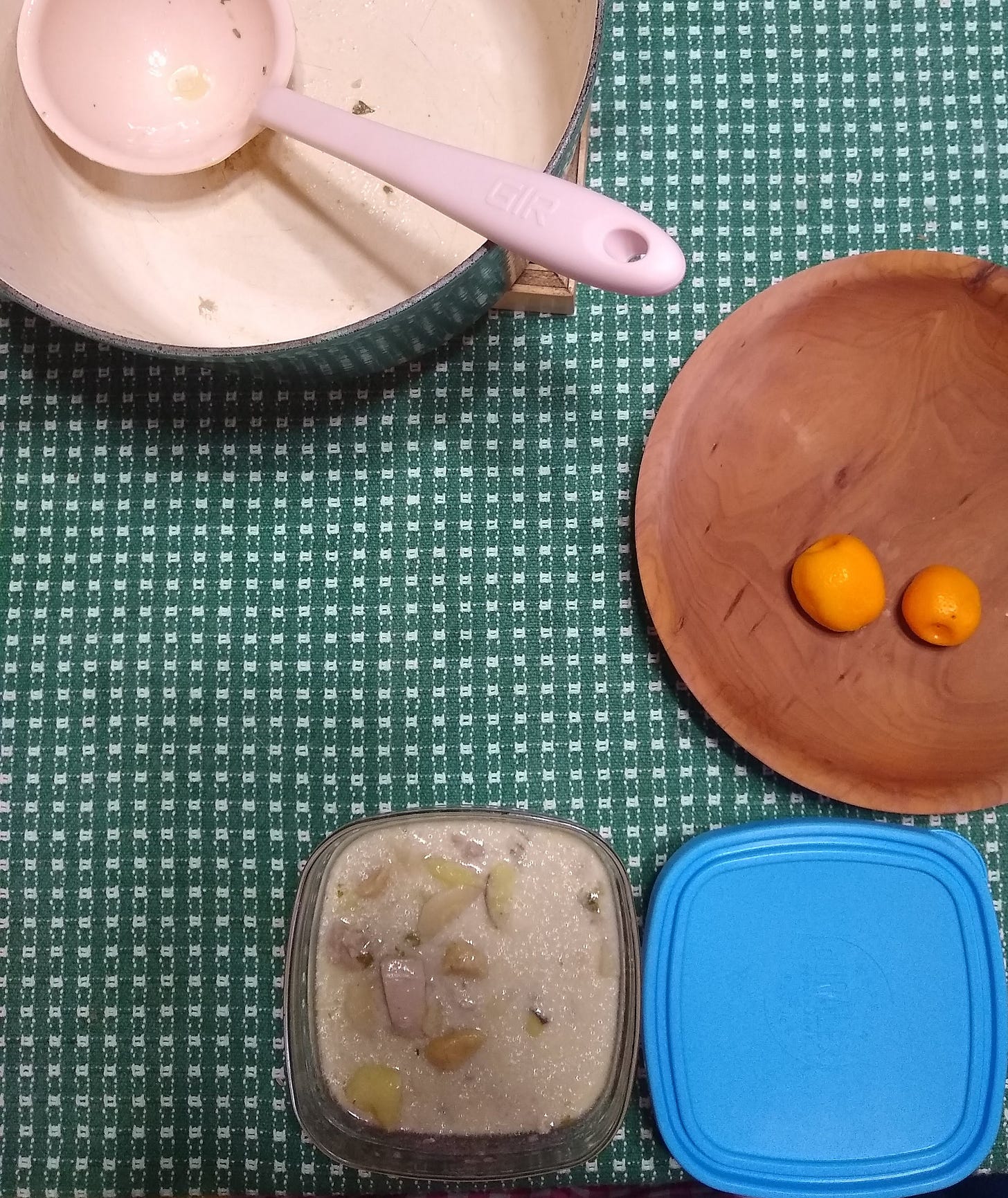
It is a curious problem, to have reached a stage of cultural development where now the central question is whether or not you like to do something. Does it bring you joy or happiness, or, if it doesn’t, hadn’t you rather do something else then? Don’t worry, I am not hypocritically leveling this charge against others while not noticing it in myself: I am also a product of the modern culture, and I also struggle with this. But I also found myself convinced, over time, by the likes of Kierkegaard and Charles Taylor, that doing only what one likes to do isn’t a proper grounding for a good, complete life. And so I just fight with myself all the time, when the things I know to be important to a good life are not things I want to do, not at all.
Food almost always tastes better when choosing the slower option, but the constraints of life (or our lack of patience) push us to choose speed over taste. That’s a lesson about life. — James Decker
Shop Class as Soulcraft and other books like it have led to some small revival of traditional handicrafts, such as woodworking and knitting, by people who have come to view such crafts as a way to stave off the apparent soul-less-ness of modern technological life. People pay to go to camps offering them a strenuous life, for a short time, to reinvigorate their lives with meaning. I think people who start some of these habits continue them as they become good at them, as they find community around these habits, and as they do find some sense of peace and accomplishment from having made something, having done something. At least, I like to think so.
I would like it if there were a Shop Class as Soulcraft for cooking, but I don’t know of one,3 and anyway I suspect cooking is less susceptible to this treatment for two reasons. First, to do it properly, it must be done all the time rather than when one wants to do it, so it takes on a harsh quality of unrelenting obligation rather than a patina of meditative pleasure. We’re talking about an agricultural act here, right? Agriculture and people’s hunger have hard deadlines, timetables beyond which they can’t be pushed too far or things start to fall apart.
A second big reason for this lack is that the work disappears. When you knit a scarf or build an object out of wood or work in your garden, you are producing something visible and, often, something durable. The garden might look different next year, depending on weather and what annuals you have added, but the essential work of the garden — the effects of your care — are durable and remain from year to year. But my daily cooking? No, it’s gone. It is usually gone in less time than it took to make it (admittedly, though, I am not a very speedy cook). It still exists in covert forms, such as in my children’s muscles and bones, but no one looks at my children and sees the visible signs of my labors.4 And when I wake up tomorrow, I will have to do it all again.
A baroque cooking project might be momentarily as impressive as a freshly built bookcase or a carefully knitted scarf is, but if you blink, that dacquoise will be gone and who will even remember it? Only you, perhaps, the person whose skills rose to meet the challenges. There is some heartbreak in this, so one of the skills you must practice is suffering these little heartbreaks every day.
To be quite honest, this is one reason I like canning, in some ways more than I like other kinds of cooking: the foods last. At least a little of the food I can in one summer will still be there next summer, still smiling at me, perfectly preserved, from its shelf.
Moreover, another reason we might need a Shop Class as Soulcraft for the kitchen is most people do not think of home cooking as involving the same type or degree of skill. There are thousands of cookbooks with millions of recipes in them, and all you have to do is read those recipes and follow along like a dummy and you will have cooked, so how hard can it be? We recognize that there are sometimes real geniuses at cooking, chefs with novel and inventive ideas, but these are, of course, mainly professionals (and mainly men) who rather look down on homecooking and the (mainly) women who do it.5
The Various Skills of Cooking
I feel pretty comfortable saying that I know how to cook, and I cook in the ways that I am thinking of here, as a means of joining my ethical and political commitments to my senses of hunger and joy in eating and, yes, my obligations with regard to my family. I cook daily — sometimes it feels like I cook literally all the time — and I cook for four people, for the past 15 or so years. I feel pretty comfortable asserting that knowing how to cook is more complex than people seem to credit: it is intellectually richer, more physically skillful, and also more of a miracle.
The physicality of cooking is, of course, a given. Cooking involves a great deal of physical manipulations, from chopping to boning meat to keeping things moving in a hot wok to flipping an egg without using a spatula. But there is also the physicality of half-measuring things: I know how much salt to put in the amount of eggs I cook for our family by how it feels in my hand. When you cook all the time, you will begin to learn how to gauge whether a pot of oil is hot enough for the fritters by holding your hand over it. Edna Lewis said you can tell if a cake is done by listening to it, and she’s right. The processes of cooking produce many, many more sensory stimuli than most people seem to realize, and knowing how to cook involves noticing more and more of them. It is a full bodily engagement with the world.
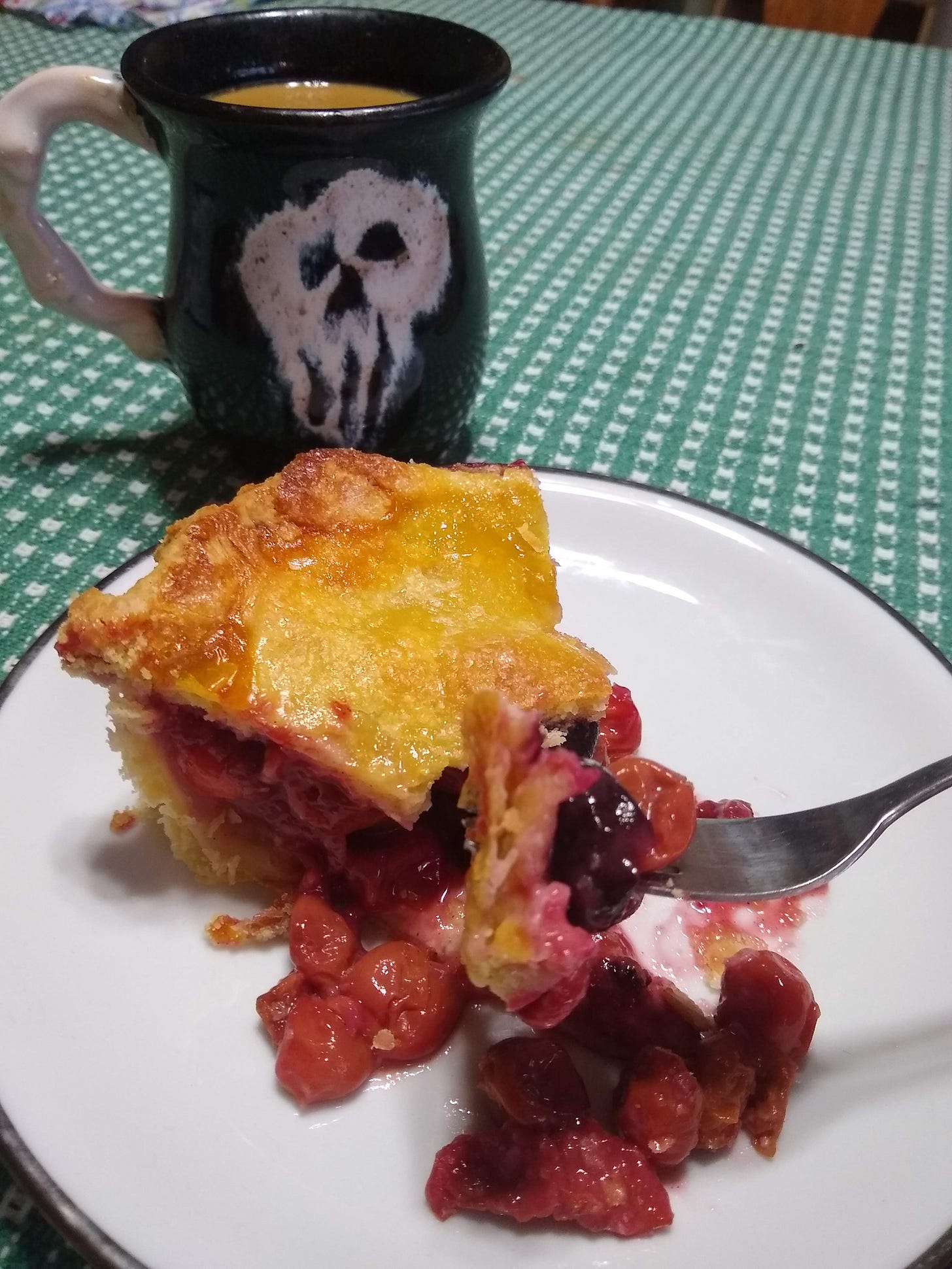
People who cook understand food itself in ways that people who do not cook cannot. Every short-order cook I have ever worked with, god bless them, can tell how a steak is done by pressing on it, because the amount of “give” it has is different at different stages of doneness, which makes a lot of sense, but you have to touch a lot of steaks to develop that knowledge. Knowing how to cook means understanding the ways foods behave — alone, with other foods and chemical reagents (such as salt or baking soda), in aggressive heat and in gentle heat. If computer programmers can speak of “empathy for the machine” and Japanese woodworkers can talk about empathy for their materials, then cooks can speak of having empathy for theirs.
Knowing foods intimately is how one develops a sense of what roles various ingredients are playing in a composite food. This knowledge is critical to being able to read recipes well, that is, to understand whether you can make them and roughly how they should turn out and whether you will like them. Furthermore, this skill is how you figure out if an ingredient you have on hand can be substituted for others and what adaptations to a general recipe or technique might need to be made to accommodate such substitutions. If an ingredient is added to a recipe to give it a specific texture, then you want to substitute something that will maintain that effect, ideally. Ultimately, this allows one to cook what one has rather than having to alter the contents of one’s household in order to conform to a specific recipe (though, to be sure, sometimes a recipe is worth buying that special ingredient for, but one can go broke by not knowing the difference).
There is also the largely invisible domain of meal planning. I have already written a great deal about that, and I don’t have much new to say, except that lately I am more explicitly trying to help the novice cooks in my household become more adept at thinking of a meal rather than one dish. This may mean you need to fix side dishes, or give proper consideration to whether something is a full one-pot meal or can be served simply with some bread and pickles or what have you. The recipe followers of my household are chafing a bit at the idea of needing a side dish and how to figure out the timing and so forth. Knowing how to cook, as a deep skill, then involves also knowing what makes a meal a meal. This is a thing people have tried to make rules for, such as “MyPlate” from our sagacious government, or the television commercials showing “a balanced breakfast.” But it’s also a thing that involves a lot of intuition6 about what flavors and textures will complement each other, making the meal feel more like a meal, even when the nutritional content doesn’t require it.
Another skill is that of not starting from scratch every time. Oh, you weren’t expecting that, were you? You have some collection of previously cooked ingredients in your refrigerator, if you are cooking all the time, so what can be made from them? The easy things are to use them as omelet or frittata fillings, or perhaps pile them up on toast. I say those things are easy, but they are also good for many different types of foods, so I do not mean to disparage such methods. As you become both more habituated to cooking all the time as an agricultural act, and also more confident and empathetic with your materials (and yourself), you’ll just start preparing some foods ahead of time, for whenever you do want a meal that you don’t have to start from scratch. I do this particularly with potatoes, because having partially cooked and well seasoned potatoes on hand is such a huge boost to a new meal. Sometimes having the potatoes already there in the refrigerator is the motivation I need to go start cooking the next meal. Anyway, this topic does have an entire book devoted to it: An Everlasting Meal by Tamar Adler, which is good even though I also hate it.7

Anyway, I don’t have a conclusion here because this wasn’t the post I intended to write when I started writing, but I think I have talked myself into writing Cooking as Soulcraft. Will it encourage people to cook more? I don’t know; that seems like a lost battle. But it will make me feel better that, finally, home cookery has been given its proper due.
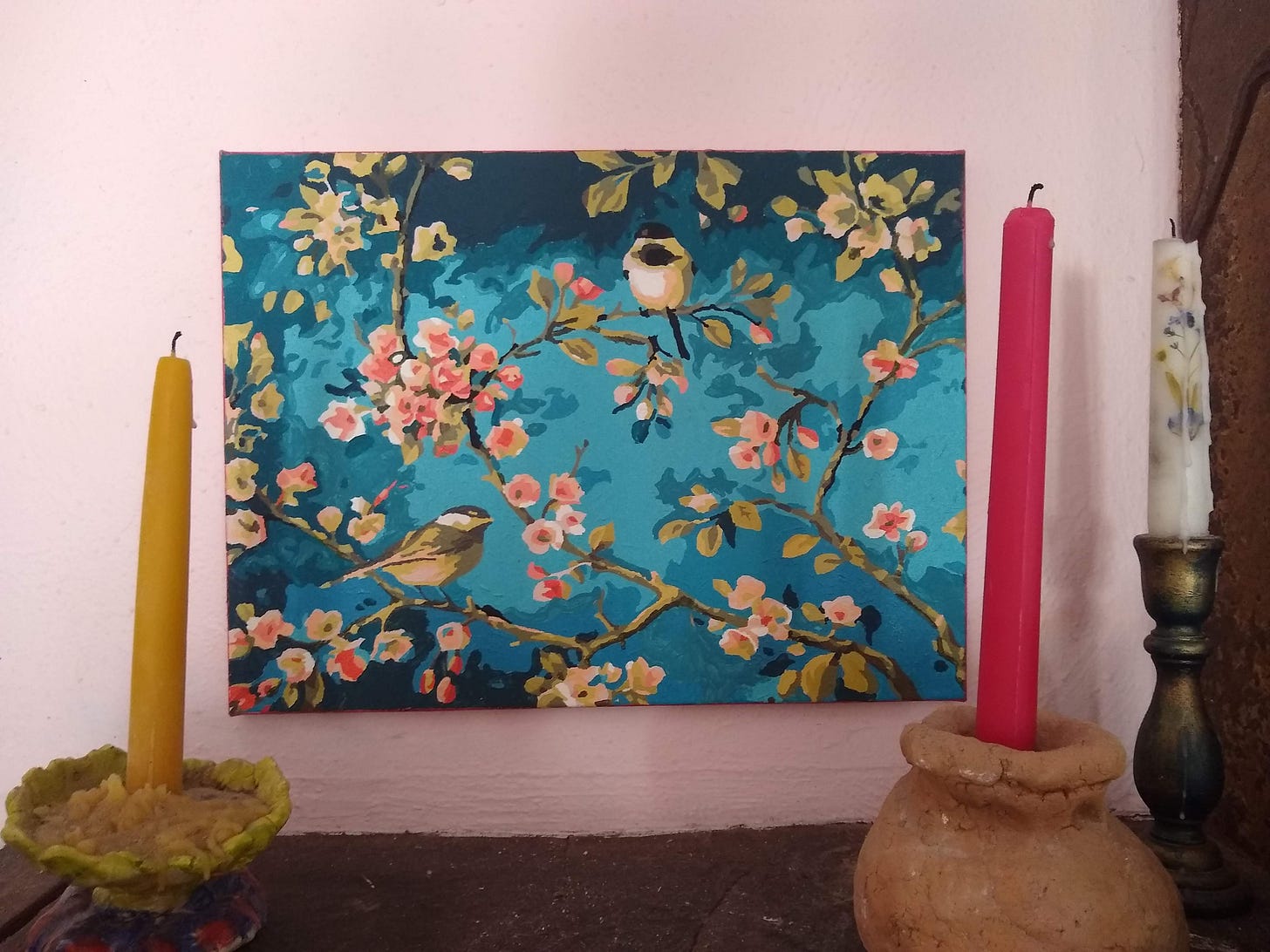
It is easier and often funnier to criticize, and it is easier to be specific with criticism than it is with praise. As Chesterton said, it is easy to be heavy, hard to be light. This is something I’ve been saying to Chris for years, and today he went and turned that into a thread on his Mastodon account.
I hope it doesn’t need to be said that people do not cook too much anymore. I could pull out charts and so forth, but I would rather not. Don’t make me pull out my charts, folks.
I have a few books that I think try to be this, such as Tamar Adler’s An Everlasting Meal. But a notable thing about books like Shop Class as Soulcraft is that they are never trying to teach you to do the thing they are talking about. Books that are praising working with your hands are almost never teaching you any useful skill, but the books that extol the virtues of cooking are still full of recipes. The presence of recipes makes them feel more specific and constrained than similar books about other handicrafts.
And now in fact people get quite annoyed when you say something like, I am proud of my children. The children are individuals, you see, not products of my work, nor my property, and products of my work are the only legitimate targets for feeling pride. But, of course, physically if nothing else, the children very much are the end product of my physical works. In my opinion, telling mothers not to say that they are proud of their children is simply another way to denigrate the work of homemaking and child-rearing.
There is also surely an element of classism in how people treat cooking, as anyone who could afford not to cook has always avoided cooking. Cooking for oneself (and/or one’s immediate family) has always been a low-class activity.
I hold the view that what we commonly call intuition is just unarticulated, tacit knowledge. It is not a lesser type of knowledge, although it is harder to pass on unless one does the work of trying to teach it, which involves articulating it and making it explicit.
The book is chockablock with things like, “I first learned you could put scrambled eggs in a sandwich on a trip to Laos…” Girl, please, Burger King been putting scrambled eggs on croissants for breakfast sandwiches for years.


